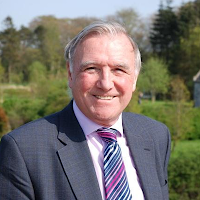Embed from Getty Images
One of the minor triumphs of the Independent Inquiry on Child Sexual Abuse has been the light it has cast on the Liberal Party in its last days.
On 13 March 2019 Sal Brinton, Des Wilson and David Steel all gave evidence on those parties' response to allegations of sexual abuse against Cyril Smith.
Steel's evidence was strongly criticised in the inquiry's resultant report, but it is Des Wilson's evidence that interests me here.
As younger readers may not have heard of him, here's how Wikipedia describes his involvement with the parties:
In many ways an anti-establishment radical, he joined the Liberal Party in order to stand in the 1973 Hove by-election. Although unsuccessful, he stayed involved in the Liberal Party and in 1986 he became its President, a position which allowed him to act as its Campaign Director in the 1987 General Election.
He later wrote a book, The Battle For Power, about the strained relationship between the Liberals and the Social Democratic Party (SDP) during that campaign, the last general election fought as the SDP–Liberal Alliance. He was an enthusiastic supporter of the merger between the two parties in 1988 and became Campaign Manager for the new party the Liberal Democrats under Paddy Ashdown in the 1992 General Election.
Somewhat disillusioned with party politics after that campaign, Wilson then moved on to become Director of Corporate and Public Affairs for BAA plc. He became chairman of the England and Wales Cricket Board's corporate affairs and marketing committee in 2003,[7] but resigned in 2004 over the controversy related to England touring Zimbabwe.
So here are some extracts from his evidence to the inquiry.
First, this is how he was chosen to fight Hove in 1973:
I went down to a selection committee of three people: a Cambridge University student, who left for university the next day and was never seen again; a woman who explained to me she was about to migrate to South Africa, which she duly did that week and was never seen again; and one chap who remained to be my driver during the by-election. And that's how I was chosen.
I also noted that it was said that one went through an interview process nationally. This was completely forgotten until halfway through the by-election when someone said, maybe, as a matter of courtesy, I should be interviewed so I went up and had tea with the president of the party at that time, Lord Beaumont.
Here he is talking about the Liberal Party when he became its president in 1987:
It was almost like two parties. The party in the country was very strong, winning council elections -- in fact, at the time I was president, I believe they'd got more votes in council elections than either of the major parties. It was starting to take over city councils like Liverpool and it was driven by an organisation called the Association of Liberal Councillors, and it was very strong, very healthy, and I was very much their president. They saw me as a president of the party, rather than -- I heard the Baroness earlier talking about an "establishment figure". I was never seen as an establishment figure.
The parliamentary party tended to consist of a considerable number of by-election winners. I mean, it's worth stressing this. ...
I think the point I was making was that most of them, when they weren't in Westminster, went straight back to their constituencies fighting to hold them at the next General Election. So in a way they lived in a world of their own. That was not much related to the -- what they called the activists. They didn't use that word as a compliment necessarily. This was my big problem with the parliamentary party:
I believed that it was such a good campaigning party, the parliamentary party should have been the tip of the arrow and that they should have about six to eight issues that it fought on in the House of Commons instead of trying to effectively shadow over 200 ministers and have someone at every day at every debate.
It was ludicrous. No-one knew they were there, no-one knew what they said or did. Whereas if, in fact, they'd had a whole party organised behind them on a particular issue, they could have been very, very effective indeed.
Now, they really, really didn't like the idea of being campaigning MPs and actually having to do some work and that was part of the problem.
And here he is on Cyril Smith himself:
The first thing to say about Cyril Smith -- you will have seen photographs of him, you will have seen him on television. I can't exaggerate how enormous he was. He was a huge man, and this in itself had a kind of intimidating impact, and particularly if you were arguing with him, which is one of the reasons why, when the whole thing about boys came out, I was terrified for them because I could imagine what a frightening figure he was. He was enormous.
The second thing was that he never disagreed in an argument on a major policy or about his position in the party without adding a threat. There was always a threat: "I will leave the party"; "I will resign"; "I will go to the press"; "I will do this, I will do the other". He had a view of himself as being indispensable to the party, but also he recognised the huge impact it would make if he did resign, or whatever. So he bullied the party, in a way. He bullied the parliamentary party, in a way, by constantly making these kinds of threats.
For myself, I read the
allegations against Smith when they were published in 1979 and am deeply sceptical of anyone who was around in the Liberal Party in those days who claims not to have been aware of them.





























